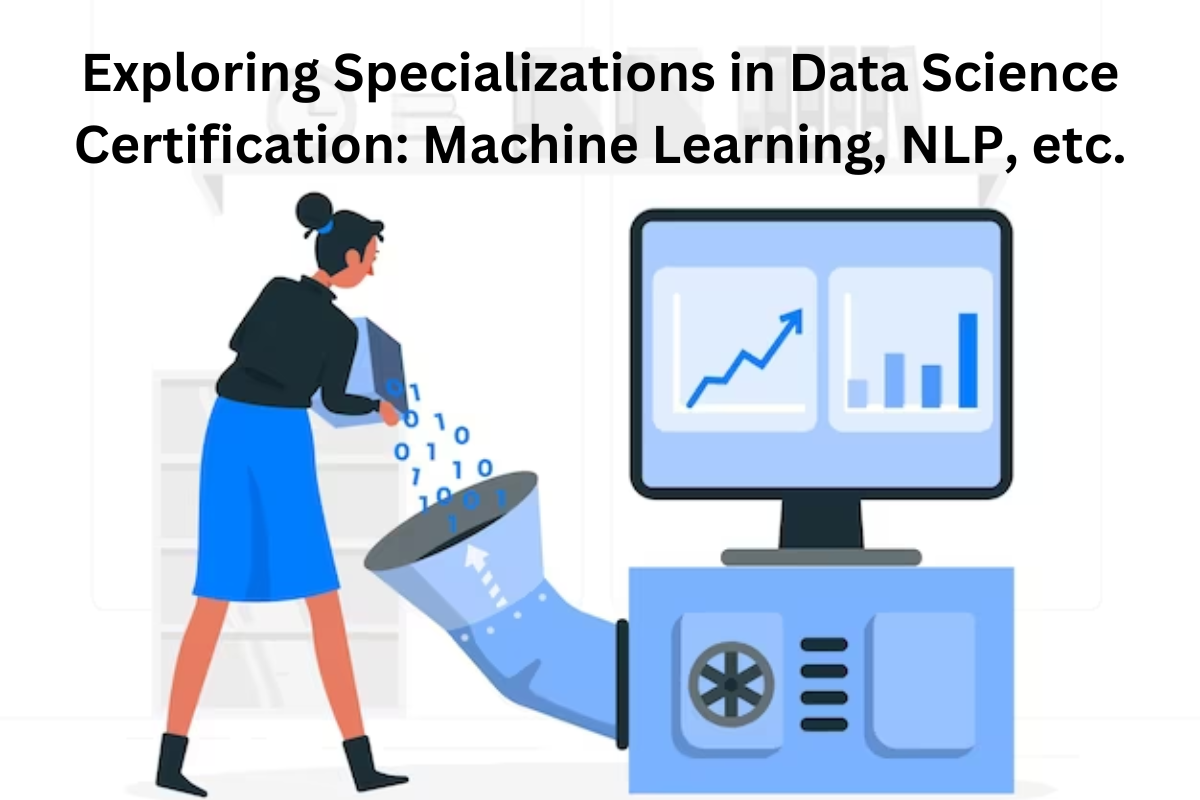Python for data science beginners
Python is a great programming language for newcomers to data science because of how easy it is to learn, and because it has a large library of tools for manipulating, analysing, and visualising data. Here's a step-by-step guide to getting started with Python for data science:
Install Python:
Download and install Python from the official website (https://www.python.org/). Choose the latest stable version (Python 3.x) as Python 2.x is no longer supported.
Install Anaconda (Optional, but recommended):
Popular Python distribution Anaconda includes crucial data science training in hyderabad tools like Pandas, NumPy, & Matplotlib in one convenient package. It simplifies the setup process for data science beginners.
Download Anaconda from https://www.anaconda.com/products/individual and follow the installation instructions.
Jupyter Notebooks (Optional, but highly recommended):
Jupyter Notebooks provide an interactive environment to write and run Python code in blocks. They are widely used in data science for data exploration and analysis. Install Jupyter Notebooks using Anaconda or with the command: pip install jupyterlab.
Explore Data Science Libraries:
Familiarize yourself with essential data analyst course in hyderabad libraries like Pandas (for data manipulation), NumPy (for numerical computing), and Matplotlib/Seaborn (for data visualization).
Data Manipulation with Pandas:
Learn how to load data from different sources (CSV, Excel, SQL databases) using Pandas. Practice basic data manipulation tasks like filtering, sorting, grouping, and merging datasets.
Data Visualization with Matplotlib/Seaborn:
Use Matplotlib or Seaborn to create basic plots, such as line charts, bar plots, scatter plots, and histograms. Customize the appearance of plots to enhance visualizations.
Introduction to NumPy:
Learn the basics of NumPy arrays, which provide a foundation for data manipulation and mathematical operations in Python.
Introduction to Statistics:
Familiarize yourself with fundamental statistical concepts like mean, median, standard deviation, and hypothesis testing. These are crucial for data analysis.
Basic Machine Learning Concepts (Optional):
Gain a thorough grasp of machine learning principles including classification, regression, clustering, and supervised and unsupervised learning.
Practice with Real Data:
Work on little data projects or contests to put your newly acquired abilities to use. Utilise Python's data science packages to analyse datasets, derive insights, and visualise the outcomes.
Learn from Tutorials and Courses:
Take advantage of free online tutorials and courses to learn more about Python for data science.Websites are a great source of information.
Community and Practice:
Join data science communities, forums, and social media groups to interact with other data science enthusiasts and seek guidance when needed. Practice regularly and build a strong foundation by working on diverse data science projects.
Remember that data science is a vast field, and learning is an ongoing process. Start with the basics, be patient, and gradually build your knowledge and skills. Python's ease of use and the supportive data science community make it a great choice for beginners in the data science journey.
Become a Data Science and AI expert with a single program. Go through 360DigiTMG's data science offline course in Hyderabad! Enroll today!
For more information
360DigiTMG - Data Analytics, Data Science Course Training Hyderabad
Address - 2-56/2/19, 3rd floor,,
Vijaya towers, near Meridian school,,
Ayyappa Society Rd, Madhapur,,
Hyderabad, Telangana 500081
099899 94319
360DigiTMG - Data Analytics, Data Science Course Training Hyderabad
Source Link : What are the Best IT Companies in ECIL




Comments
Post a Comment